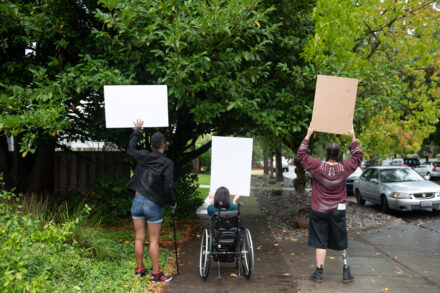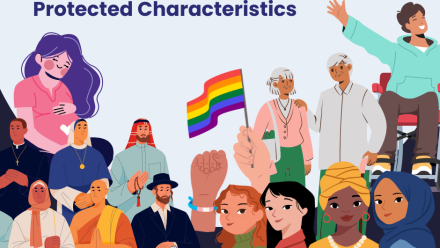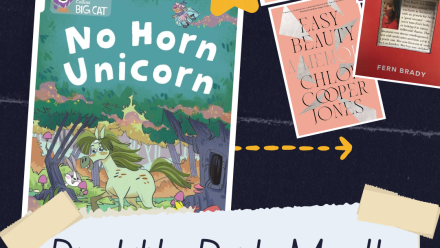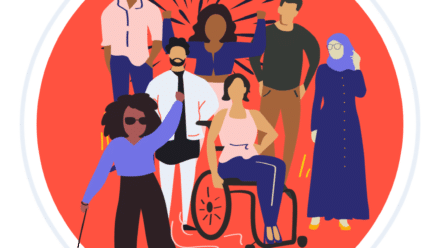Still Silenced? Our thoughts on BBC2’s ‘The Hidden Story of Disabled Britain’
29th January 2021 by Ellie Thompson
As a disabled-led team, a lot of us turned to the BBC2’s recent documentary ‘Silenced: The Hidden Story of Disabled Britain’ with interest and excitement!
The story of disabled Britain is one that has long been overlooked. There’s so much truth in the title; we have been silenced, misrepresented and faced with systemic barriers for generations. It’s great to see the BBC starting to amplify disabled voices, and hopefully representative of an exciting line of programming to come; programming that is diverse, inclusive and informed by lived experience.
There’s real value in having this story told so publicly, and by those who lived through it. As our Higher Education Partnerships and Inclusion Lead Brian Lutchmiah says: “It’s positive that the BBC is clearly attempting to provide focussed content on the experiences of disabled people, by disabled people. I hope this is a commitment that continues.”
Our Workshop Facilitator Nikita Montlake added “I enjoyed the documentary and it was a great starting point,” going on to note, however, that this programme “only scratches the surface!”
One stark omission for us was the exclusion of any representation for learning disabled people, and others with hidden differences. For a large proportion of the disabled community, this means a programme we hoped would represent us, instead ignored us- a heavy blow for a community that, as this documentary’s title acknowledges, is already “silenced” and “hidden”. Further discussion needs to be had amongst the challenges and stigma faced by learning disabled and/or neurodivergent people. Further stories need to be told.
Another area that urgently needs more exploration is how deep and pervasive the barriers faced by disabled people are, even to this day. The wonderful Cerrie Burnell, who hosted and led the documentary, did note the barriers we still face; those yet to be broken down. But there is hours of potential programming on the multifaceted ways in which we, as disabled people, are still silenced, still hidden.
As our Workshop Facilitator Sam Whittaker noted “The history highlighted what has been done – but there wasn’t enough on what still needs to be done now. It was only near the end that the impact of austerity on disabled people was mentioned.”

Photo credit to Disabled and Here. Photo by Chona Kasinger.
Finally, as advocates for the social model of disability, it was genuinely exciting to see such a mainstream discussion of the social model, especially hearing from Judy Hunt, whose late husband Paul Hunt helped bring the social model of disability to the UK thanks to his essay “A Critical Condition”.
In contrast to the medical model of disability, the social model encourages us to think of disability not in terms of innate deficits, issues to be ‘cured’ or ‘fixed away’. Instead, we are disabled by societal barriers- the issue is one of exclusion, not something ‘wrong’ with us. Everything we do at Diversity and Ability- from training in Assistive Technology, to workshops on disability, to fostering inclusive workplaces- has its foundation in our belief in the social model of disability.
However, what we would like to see in future programming is a deeper exploration of what the social model means for us as individuals. Blaming the make-up of society should not mean relinquishing each of us of the opportunity, and responsibility to fight for change ourselves. As our Partnerships and Outreach Lead Emma Turner puts it: “Yes, it’s a society that puts up the barriers. But it’s important to highlight that we as individuals make up society – it’s all of our responsibilities and opportunities – there are ways in which we, as individuals, as well as broader societal construct, can make that shift and not rely on others.”
To even be having this discussion, and for it to have been triggered by a BBC documentary, is such a great sign of how far we have come. Finally, our stories are being heard. Last week’s documentary was a powerful and long overdue insight into the experiences of disabled people. Our hope is that the story doesn’t end there, and space continues to be made for more of us to share more of our lives, and fight for true inclusion.
Want to hear more from us? Sign up to our newsletter.
Want to know how we can support your organisation to reach its diverse and inclusive potential? Find out more about our services.


